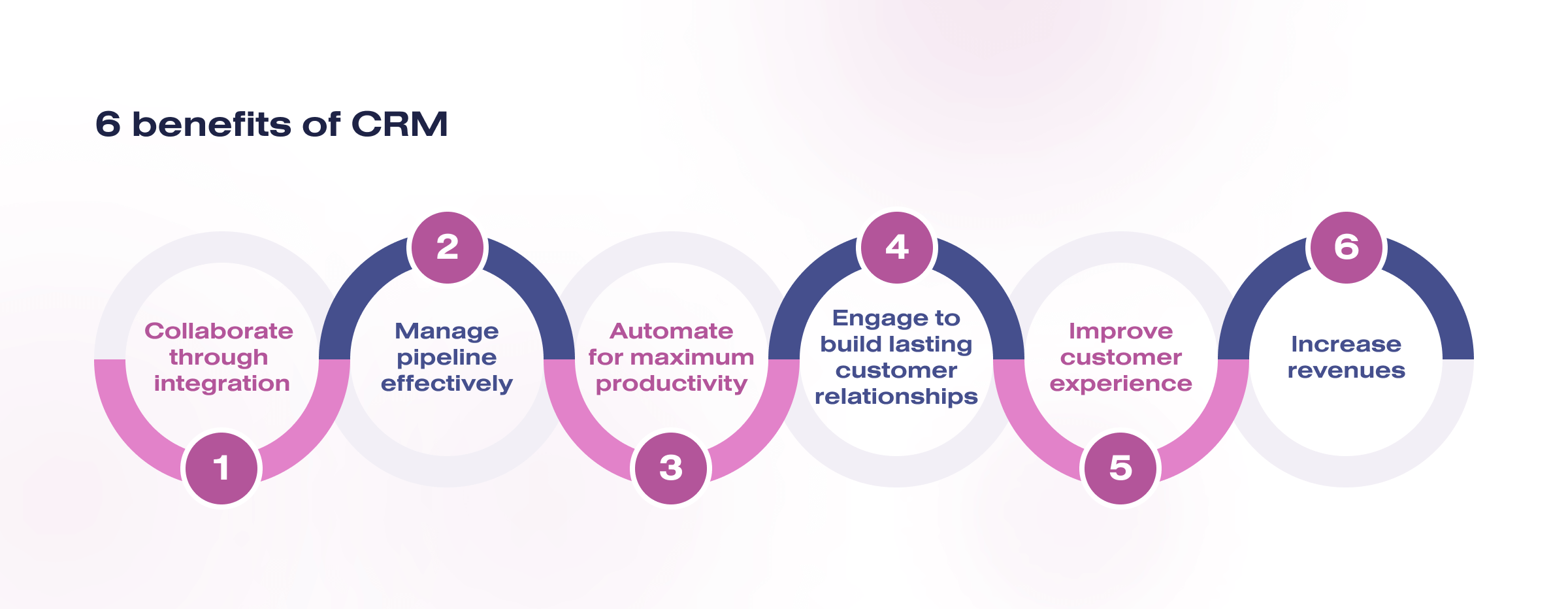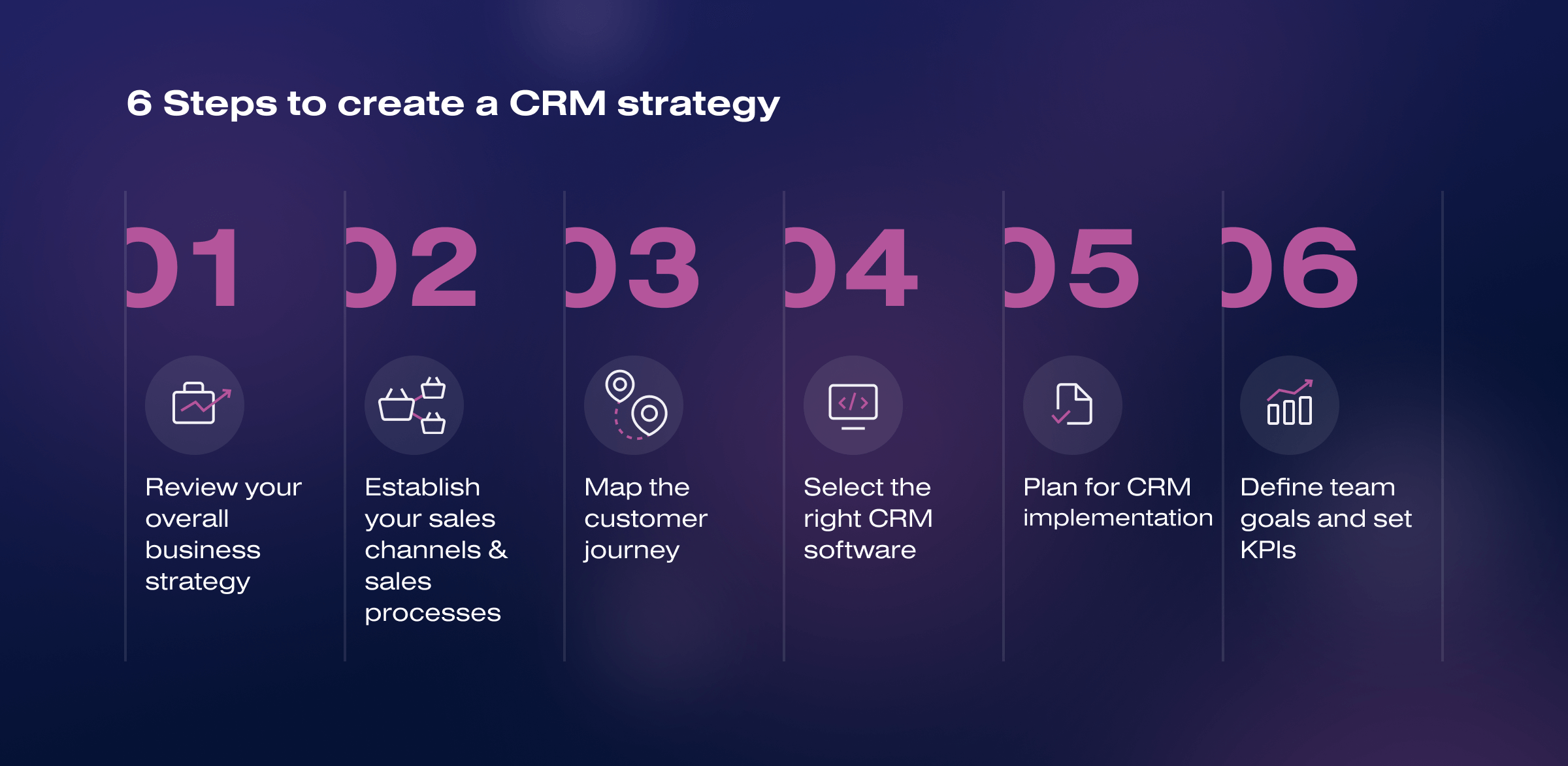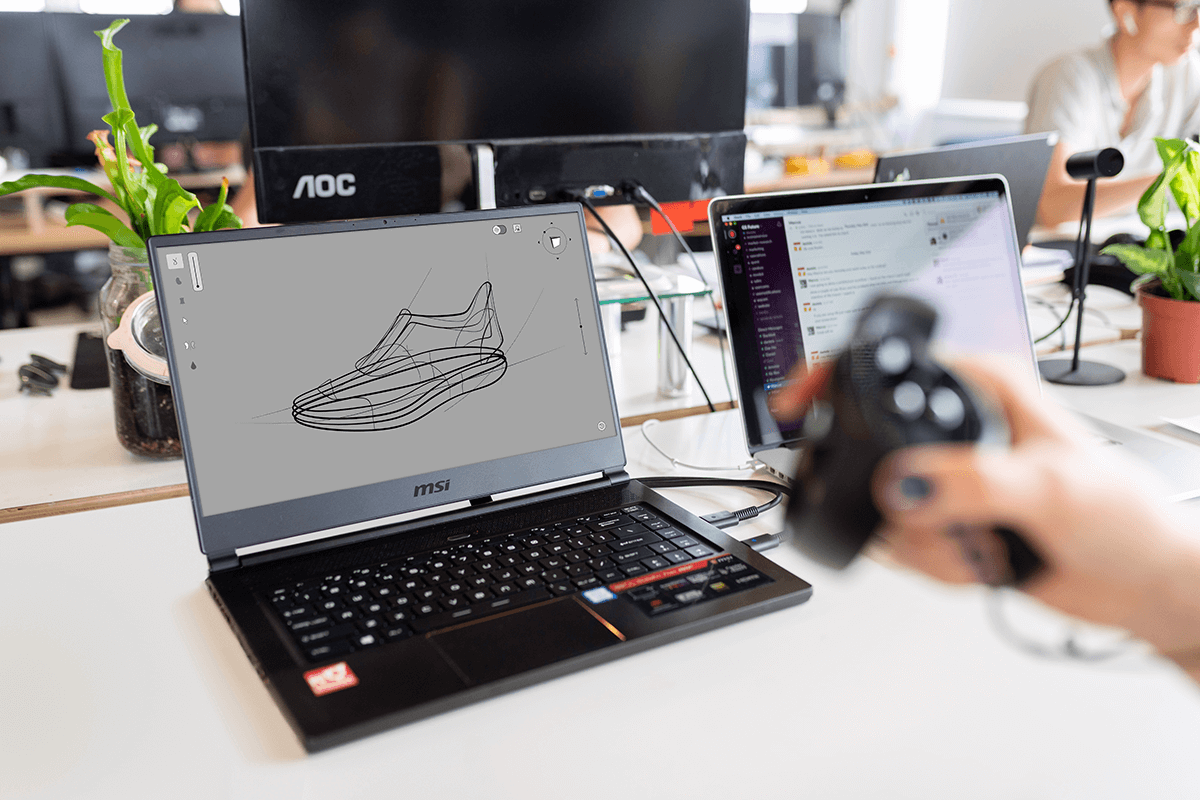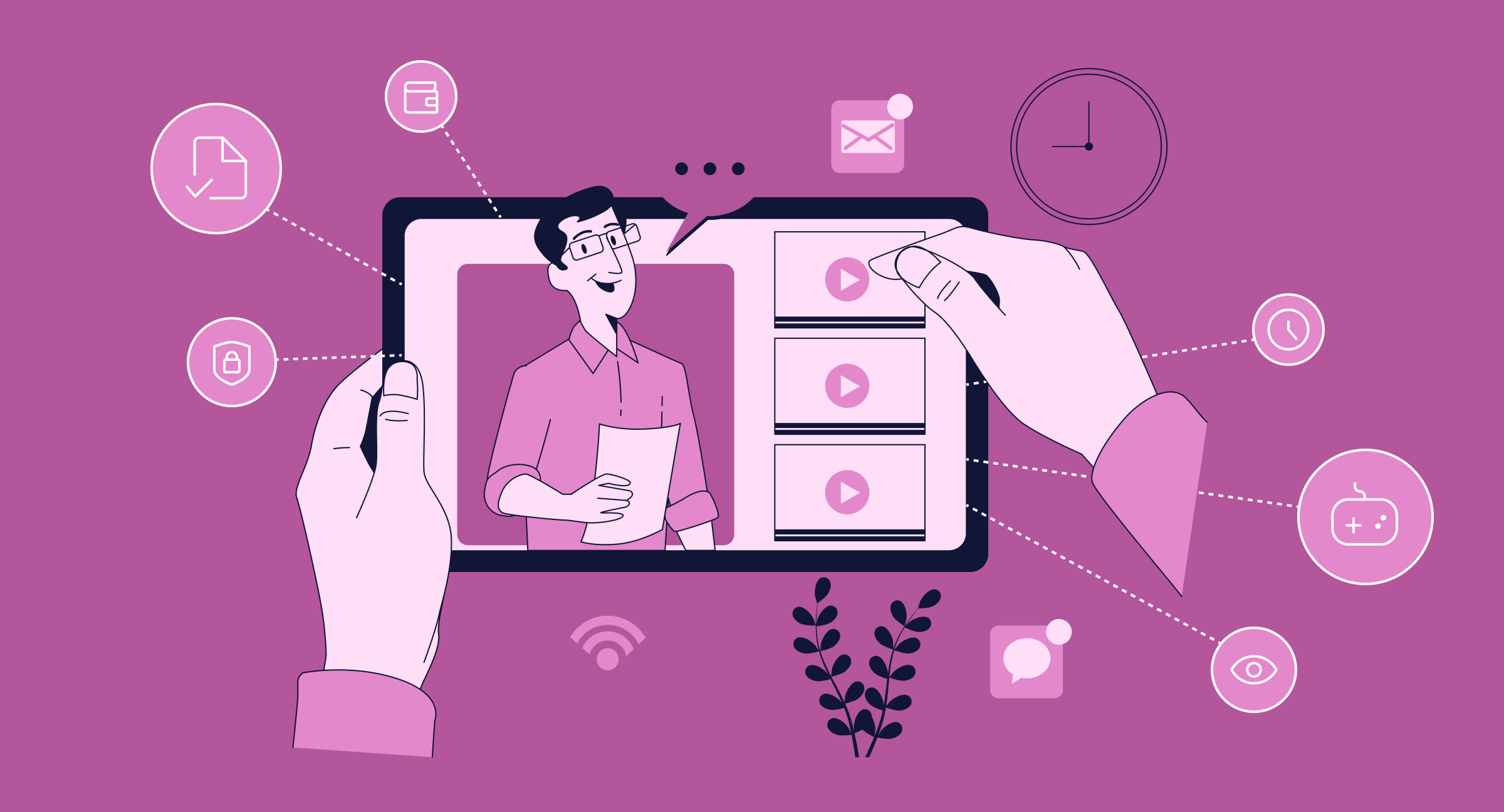Modern business is becoming increasingly difficult to grow without digitized business processes, including sales and customer relations. CRM systems allow businesses to solve this problem. Custom CRM development is superior to ready-made CRM products because the system developed from scratch will be adapted to the specific company.
In our article, you will discover types of CRM systems, CRM development steps, and differences between custom and out-of-the-box CRM.
Key points
What is a CRM system?

CRM (Customer Relationship Management) is software that allows you to manage processes within the business, keep records of all transactions, as well as automate interaction with customers, both regular and new. Thanks to CRM software, it is no longer necessary to keep important information in your head or maintain many disparate tables in Excel.
So, customer relationship management software:
- Provides a “one-stop-shop” principle, replacing several disparate programs. It saves time, allowing managers to work with clients more effectively and increase loyalty.
- Automates routine business processes. CRM prevents employees from wasting time executing template contracts, invoices, etc., and ensuring they are sent in due time. This saves time for sales managers, allowing them to be more engaged in their main work: to find new customers, increase repeat sales, develop individual commercial proposals, and save time and effort.
- Ensures the growth of service quality by automating communication with customers. Chatbots, notifications at all stages of order placement, scripts for communicating with clients, IP telephony, and more can be integrated into CRM. Taken together, all this helps to increase customer loyalty.
- Accumulates all the information on clients and concluded deals. The system lets employees quickly find the phone number, invoices, order history, and even a record of phone calls.
- Allows you to build analytics. We mean reports on sales, individual customers and their activity, marketing actions, number of cancellations and returns, and efficiency of sales managers.
- Provides access to data from anywhere with internet access. Work processes do not stop, even if employees have to work from home.
- Ensures data storage security. It is achieved thanks to restricted access for each employee, database duplication, and reliable server storage.
You should ensure you have the necessary resources to successfully develop the CRM software, including a dedicated development team, project management, and appropriate infrastructure.
Why do businesses need CRM software?
The goals of implementing CRM can be different, depending on the needs of a particular business. Examples of goals are:
- Increase in sales efficiency
- Increase conversions by X%
- Reducing the transaction cycle: for example, from one month to two weeks
- Increase in manager’s sales by X%
- Decrease in sales volatility
- Increasing the transparency of the sales department management process
When developing a CRM system, consider its integration capabilities with other systems and tools, such as email clients, marketing automation tools, ERP systems, or other relevant applications.
Types of CRM Systems
CRMs, as a rule, are not universal. There is no clear classification: the developers often create a system for the task or industry of business and then fine-tune it. However, an approximate typology can be formulated as follows:
- By development method: ready-made (out-of-the-box) and custom development
- By purpose: for sales, marketing, improving customer service, universal
- By type of business: for real estate agencies, beauty industry, trading companies, staffing agencies, online stores, etc
- By needs: operational, analytical, collaborative, strategic
At Soloway Tech, we can develop any type of CRM software specifically for your needs.
Ready-made solutions vs. custom CRM software
To find out what is better – a ready-made CRM or custom CRM software, we compared them by 5 criteria: cost, timeline, functionality, documentation, and maintenance.
| Ready-made CRM | Custom CRM development | |
| Cost | Payment is by subscription: once every 1-3-6 months or once a year. The amount depends on the number of connected employees. On average, 1 account costs $150 per year. This means that a cloud CRM for a company of 10 people will cost $15 000 annually. | Creating a CRM system from scratch costs thousands of dollars, but the business gets the functionality it needs. To develop a CRM to suit the individual processes of the company, the development company needs to spend a lot of time and effort studying the characteristics of the business. Sometimes it must come up with a whole digital strategy. This requires a comprehensive staff of specialists: a business analyst, a system architect, an interface designer, and a large team of developers. Their remuneration is included in the price. |
| Timeline | No need to wait. It’s enough to register and pay for a license. Your company can get to work right away. Of course, you must spend time adjusting to your business and configuring the integrations and automation. This can be done in several weeks with the help of technical support, or you can order the configuration and implementation from the outside. | Designing a CRM system consists of several stages, each of which lasts from several weeks to several months: Analyzing the business processes of the clientForming a requirements specificationDeveloping a product to meet the objectives of the companyImplementing the integration with the necessary servicesTransferring databases from Excel and other sourcesTesting, making changes, and putting the product into operation |
| Functionality | It has a ready set of functions. It is a universal solution that is designed to be used by any company with standard business processes. That’s its advantage. But not every business works according to the standard scheme. Some businesses buy ready CRM and customize it, as this option is quicker and cheaper than developing custom CRM. | Custom CRM is developed for a specific business. All of the peculiarities of the company’s work are taken into account. The functionality is designed down to the smallest detail. It makes sense to develop such a system if none of the existing CRM covers business needs. |
| Documentation | Buying a CRM system, you immediately get detailed instructions on how to work in it, and you can order training from the integrators. The system’s creators have taken care of your convenience: all you need to do is follow the ready-made instructions. | It is not enough just to develop the CRM as it is important to train people to work in it and write instructions for new employees. To do this, the development team needs to create two types of documentation: for developers and users. |
| Maintenance | You don’t need to buy a server and hire programmers for a SaaS CRM system. Debugging, installing updates, ensuring data security, and solving technical problems are the developer’s responsibility. Technical support helps quickly solve problems in online chat, by phone, or by mail. For out-of-the-box CRM you need a server, and communication with technical support is available. But sometimes verbal recommendations are not enough, so to fix the problem, you have to call a specialist or keep a programmer on staff. | To install a customized CRM system, you must buy a client-server and, ideally, hire a system administrator who will monitor the server, CRM and troubleshoot errors. Support of the server and data integrity is completely on your company. |
Developing a custom CRM for a large corporation or business with specific processes is more profitable and convenient. Of course, you will have to invest a lot of money, but the system will be fine-tuned clearly for the requirements.
Developing a custom CRM system makes no sense for a company with standard business processes. For example, dozens of ready-made online stores or hairdresser CRM systems exist.
CRM development: a step-by-step guide

The processes of every business are often different. Solutions that will work well for one company will not work for another. That’s why before you start developing CRM, it’s worth conducting a deep analysis to get a product that will solve your problems and not create new ones.
Here is a step-by-step guide for developing a CRM system from scratch:
- Project planning and requirements gathering (1-2 months). This phase involves defining the project scope, identifying the CRM system’s requirements, and documenting them in detail.
- Design and architecture (1-2 months). In this phase, the CRM system’s architecture is designed, including database design, UI/UX design, and system flow.
- CRM software development (3-12 months). This phase includes building the CRM system’s backend and frontend components, implementing features and functionality, integrating with third-party services (if required), and ensuring the system’s performance, scalability, and security.
- Testing and quality assurance (1-2 months). Once the CRM system is developed, it must be thoroughly tested for bugs, errors, and compatibility across different devices and browsers.
- CRM deployment and launch (1-2 weeks). This phase includes data migration, system configuration, and final testing before making the CRM system live.
At Soloway Tech, we have extensive experience in developing CRM software.
Our experience in CRM development

One of our last projects was Moyo’s digital commerce transformation, where we also were responsible for CRM implementation. Our team:
- Analyzed the client`s goals and proposed developing a CRM system, new website, and mobile application.
- Designed mockups, database, UI/UX, and system flow.
- Developed CRM, tested it, and synchronized it with 1C using SOAP.
As a result of our work on this project, Moyo has a robust and functional CRM system that helps the company organize and conveniently process a large amount of information about products, orders, and customers.
Custom CRM development cost
How much does it cost to develop CRM software? This is a good question, which is quite difficult to answer exactly. It all depends on how complex a CRM product you need. Non-standard functionality, high loads, integration with third-party services, and data security – all affect the cost of CRM development.
Developing a CRM system from scratch may cost anywhere from $25 000 to $250 000. This cost includes the design of the CRM system, the development of a prototype for the CRM system, programming, and CRM software setup. The exact price can be determined only after evaluating the total amount of work.
Conclusion
If you have the task of launching your own CRM, we are happy to help you make a comprehensive assessment and start development as soon as possible. Leave a request on our website, and our manager will contact you!




